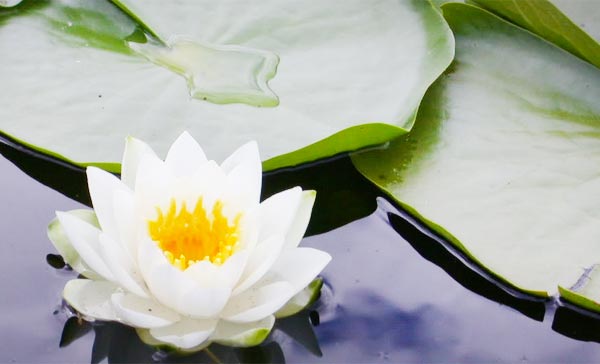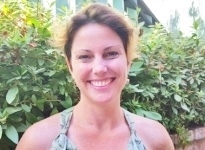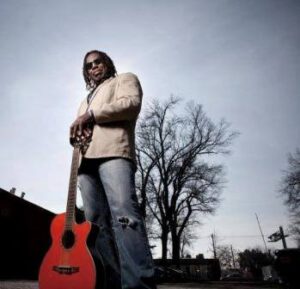
Interview with Stephen Bryant Walker, LMFT
The following is a transcription of an interview originally conducted live on Facebook, February 8, 2021.
Hello, everybody, this is Autumn Payne and I am doing a live interview today with Steven Bryant Walker. He’s a psychotherapist at Middle Way Health. He’s also known as Lama Jinpa . He is also an American Lama in the lineage of the Dalai Lama. So he makes a really interesting perspective between Western psychotherapy and Eastern philosophy. And so he’s got a really interesting perspective on mental health. And being that we are going through so much right now, with 2020, the pandemic and all of the election and all of this crazy stuff, I thought that bringing him on and talking about how we can attend to our mental health would be a positive thing.
I hope to make this a recurring series, where we discuss things that hopefully will be beneficial to other people who are watching this. So this is completely unscripted. He has not even been given an idea of what I’m going to be asking him today. So it should be fun, maybe some surprises. We’ll see.
So welcome. Thank you for coming. Here we are on Facebook. Okay, so right now we just finished an election. And there’s half of the population that’s really happy about it. And the other half of the population that’s really upset about it. And what I want to talk about is our mental health in the context of relationships, and some of the divides that are happening in a personal way between people in the same family who may have different political ideations, or even among friends that really care about each other. It’s not enough right now to just ignore the topics.
People are so fired up right now that it’s damaging relationships. I have people in my own family that are on the completely opposite side politically than I am and I just want to know, how do we deal with tensions in our families and within ourselves?
Stephen:
The gist of your question, which was, how to deal with the tension in the family, but also in ourselves, right. So that’s generally where I’m going to start people. Before we talked about relationships, I’m going to bring people back to the relationship they have with themselves, to see if They’re in touch with their inner conflicts, and then bring about hopefully, some inner peace, and then some relationship peace, and then maybe some country peace, and then maybe some world peace like that.
Most of the most of the time, people want their relationships to change but they want the other person to change first. Generally, if I’m talking to people in therapy, or I’m teaching them meditation at Lion’s Roar Dharma Center, I’m going to bring people back to themselves. Are they at peace with themselves, and peace with themselves doesn’t mean just being sure about their opinions. Peace means do they understand calmness, serenity, and equanimity. So it’s like that.
Autumn:
Okay. So that’s the first step is finding peace within ourselves?
Stephen:
Well, it’s a simultaneous step, actually. I mean, we have to do actually everything at once. We want to have peaceful relationships, but it includes noticing what’s going on inside us. Because we tend to ask other people to make the change first. As Gandhi said, we should be the change we want to see.
So say we have a pretty strong conviction about where we lie and what our values are and then we see a family member who doesn’t share that view, can you kind of walk me through what that looks like to find peace in yourself to relate to that person?
Stephen:
Well, I would walk you through by asking you, in what ways you identify with that person or dis-identify with that person. So what’s your relationship outside of the opinions? Or outside of our political differences? Or outside of our hierarchical differences? What is your relationship or does that define the relationship? So I’m always going to try to start with where can we agree? Or where can we get to yes. So there’s a famous book about dealing with conflict called ‘Getting to Know You’ so I’m going to try that first if there’s some common ground we can find. The Dalai Lama talks about finding just the common ground that we all want to be happy and free of suffering. We do all want to be happy.
Autumn:
So finding the common ground, what might be the first way that we would approach that person?
Stephen:
The common ground might be really broad. We recognize other members of our family or society are actual human beings. Because when people get into violence states mind, they don’t see other people as human beings with mothers and fathers and sisters and kids. They just see them as objects. So trying to return to the world where we are in touch with our own humaneness and then we recognize that in others. So even though I condemn and deplore the violence like it, you know, the insurrection, attempted coup at the capital, it’ still the fact that everyone there is a brother or sister or mother or father or sibling to other people. They all have some kind of life that we have to take into consideration. Even though we might consider them crazy or maybe the people that were storming the capitol think that other people are crazy, but you have to remind yourself that probably, we know someone they know. That’s what’s really interesting We’ve probably related to them in some way and particularly in our family life, They are probably things we do together that we want to continue to enjoy.
Autumn:
Okay, so I want to back up just a little bit when he said that finding, finding peace within yourself before you approach the other person, how do we find that? That’s like the question of all ages, I’m sure but what are some tools that people can bring to the table to find that peace?
Stephen:
All right, I think one of the best ways is to go outside. I know that’s difficult these days but we are more likely to go outside when it’s nicer. But I ask people to feel the ground that they walk on so that they feel a sense of steadiness and then to see the open nature of the sky and to understand that, in some sense, we’re connecting that ground and that sky. So there is always going to be peace when we bring things into harmony. If you think of bringing the sky, which is very open, the earth, which is very concrete, bringing that together, particularly when you’re walking, then you’re creating peace. So peace isn’t a static thing. It’s creating this balanced harmony between things that we might see as totally different. We have to model peace within with the peace we expect to do on the outside. If peace is seen as some kind of possession or something that’s isolated from opposites, we’re not gonna be able to create a create peace within people that are opposite to us. In my way of teaching, thinking and doing therapy or doing Buddha Dharma things, it’s finding that middle ground, finding the center of gravity between two opposite poles. I’m not asking people to agree. I’m asking people to find common ground.
Autumn:
Hmm, I like that. So not focusing on the differences so much as the commonalities.
Stephen:
We do need to know the differences in a sense since those are kind of what I call our polarities. Those are the edges of our balance pole. That’s when you walk on the tightrope across Niagara Falls. Sometimes, ironically, people that have vast differences, if they are clear about them, then there’s this kind of connecting pole between them. It can be very strong. You’ve seen that before where people are really on different sides, yet have bonded in different ways. Where people that are kind of close, end up bickering all the time. It’s using the distance or the polarities as a way to help balance. And we all have those polarities or opposites inside. And They’re definitely outside in society too but we can have the differences without the violence. We can actually have the differences be dynamically peaceful.
Autumn:
I love that. Now, that’s a beautiful message.
Stephen:
Yeah. Good.
Autumn:
Thank you.
Stephen:
All right. (Shared Laughter)
Autumn:
Thinking about those polar opposites, is it reminds me of something my husband was saying about polar opposites. You have the Democrats and the Republicans and this idea of the 100 person as sociology, right? You’ve got the Democrats saying we need to take care of the weak and we need to make sure that their basic needs are met. And we have the Republicans saying, well, you need to work on things. So really, both perspectives have a place for the one society and if we listen to each other, and pull them into that middle ground, then maybe we can get further. But I also hear you saying that maybe, perhaps before we go confront our father or boyfriend or whoever it is that has the different opinion, that perhaps taking a walk in nature and centering yourself might be beneficial. Is that a good paraphrase?
Stephen:
Yes. Walk in nature could be just sitting and breathing. You know because breathing is natural. That’s the wind, that’s the air. So I guess I’m advocating if we can just for a few minutes, step outside of our narrative, step outside of the story and recognize that, that, that is not the fundamental thing. The fundamental thing is we’ve got the earth and sky and we’re walking and breathing or we’re sitting and breathing. Sometimes it’s nice when doing conflict worked, to get people to just to sit quietly together, before they start talking. Sometimes actually, in couples therapy, you can get people to sit on a couch and hold hands for five minutes and it’s interesting how that changes the dynamic when we are willing to be close to each other, but not for speaking.
Autumn:
I like that.
Stephen:
Yeah. It is. It can’t be a Pollyanna approach. There, there are people that are obviously violent or really disturbed and the boundaries around approaching people have to be different, right? I’ve worked with very difficult people and volunteered in Folsom prison and psych hospitals and different things. And then you’d have to set up a more structured environment but it’s still the same idea. It can still work.
Autumn:
Okay, very good. Well, thank you so much. I want to keep it short, so that the concepts can have space to breathe. I am hopeful that this is helpful to people today. And thank you for coming and sharing your perspective.
Stephen:
Yes, let’s do it again.
Autumn:
We will do it again. There’s so much to cover. Thank you.






















